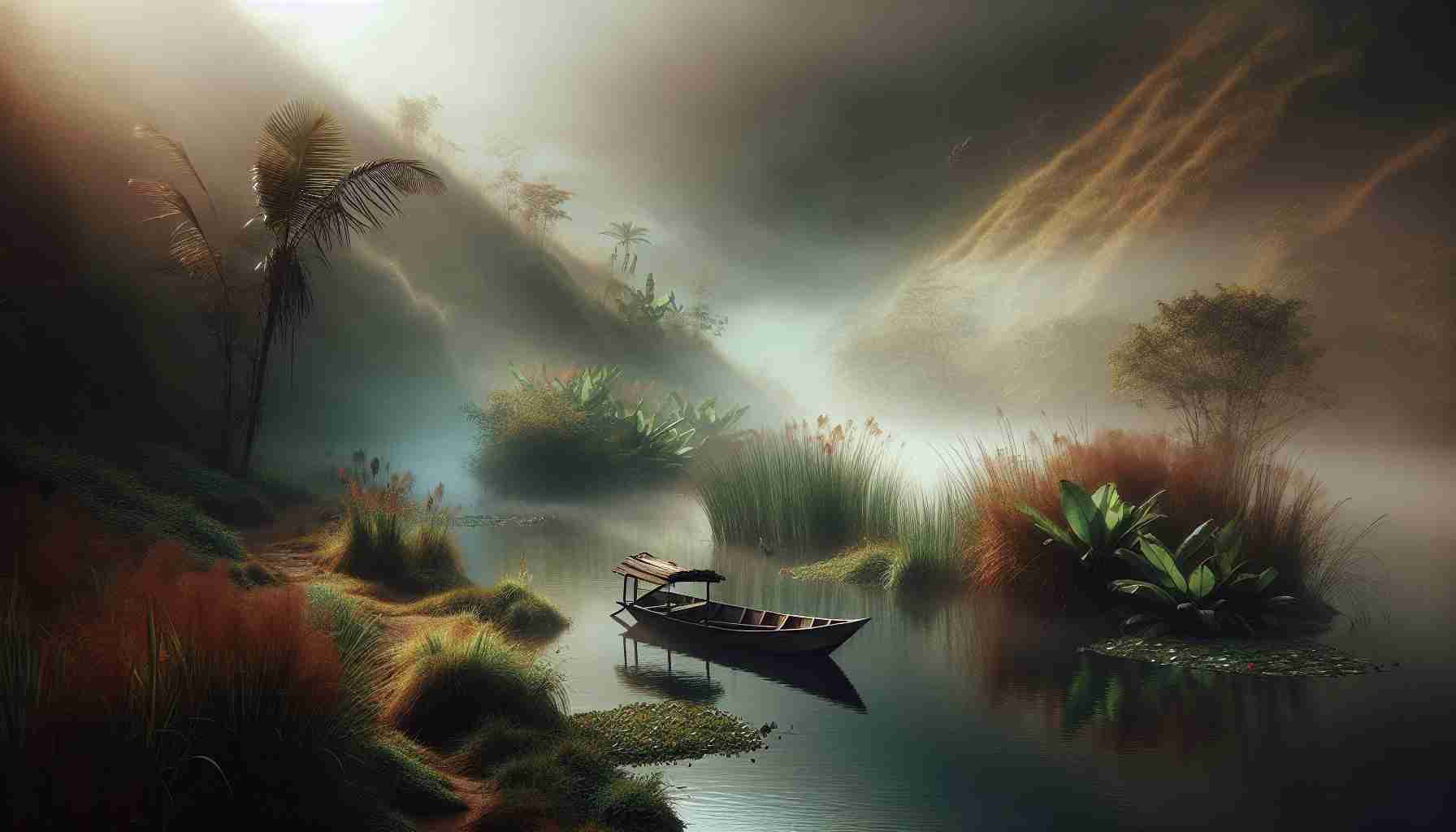

The wind was sharp that morning as I stood at the edge of the cliff, holding a broken compass in my hand. My name is Wei, and I had spent the last two weeks wandering through the forested hills, trying to find my way back home. The compass, once my most trusted tool, had snapped during a fall two days before. Since then, I had been walking in circles.
I was tired. I was angry. I had done everything I thought I should. I followed maps. I planned carefully. I tried hard. But none of it worked. My plans had fallen apart like twigs in a storm.
That was the morning I saw the boat.
At first, I thought it was a trick of the mist rising off the river down below. But there it was—a wooden boat, floating quietly near the shore with no one inside. The river moved gently, and the boat drifted without direction, bumping softly into rocks and floating free again. It wasn’t trying to fight the current. It wasn’t worried about where it was going.
Something about that empty boat made me feel... peaceful.
Later that day, I met an old man gathering mushrooms by the riverside. He wore a wide straw hat and didn’t speak unless spoken to. I sat beside him and held up the compass.
“It’s broken,” I said, almost ashamed. “Now I’m lost.”
He looked at the compass but didn’t take it. Instead, he picked up a dry leaf and let it fall into the water.
“Does the river ask the leaf where it wants to go?” he asked.
I frowned. “No.”
“Then why should the leaf fight the river?” he asked with a kind smile. “Sometimes, being lost is how we find the Way.”
I didn’t understand fully, but I felt lighter inside. We walked together a while, not saying much. I stopped trying to point north. I let go of my deep need to “fix” the path. Slowly, I started to notice the sounds of birds again. The way wind moved through trees. I followed deer trails and rested when I was tired rather than pushing forward in frustration.
Without meaning to, I was finding my way again.
On the third day, I saw the roof of my village nestled between hills. I hadn’t used a map or a compass. I had simply followed what felt natural.
That day, I learned something I couldn’t forget. We chase answers. We try to control everything. But sometimes, the clearest path is found when we stop forcing our way through.
I still have that broken compass. It's a reminder.
A reminder that, like the empty boat, moving with the river can guide us better than any tool. There is wisdom in stillness, clarity in letting go.
I didn’t change overnight. But now, when life feels uncertain, I pause and breathe. I watch the river. And I remember: even an empty boat can find its way.
The wind was sharp that morning as I stood at the edge of the cliff, holding a broken compass in my hand. My name is Wei, and I had spent the last two weeks wandering through the forested hills, trying to find my way back home. The compass, once my most trusted tool, had snapped during a fall two days before. Since then, I had been walking in circles.
I was tired. I was angry. I had done everything I thought I should. I followed maps. I planned carefully. I tried hard. But none of it worked. My plans had fallen apart like twigs in a storm.
That was the morning I saw the boat.
At first, I thought it was a trick of the mist rising off the river down below. But there it was—a wooden boat, floating quietly near the shore with no one inside. The river moved gently, and the boat drifted without direction, bumping softly into rocks and floating free again. It wasn’t trying to fight the current. It wasn’t worried about where it was going.
Something about that empty boat made me feel... peaceful.
Later that day, I met an old man gathering mushrooms by the riverside. He wore a wide straw hat and didn’t speak unless spoken to. I sat beside him and held up the compass.
“It’s broken,” I said, almost ashamed. “Now I’m lost.”
He looked at the compass but didn’t take it. Instead, he picked up a dry leaf and let it fall into the water.
“Does the river ask the leaf where it wants to go?” he asked.
I frowned. “No.”
“Then why should the leaf fight the river?” he asked with a kind smile. “Sometimes, being lost is how we find the Way.”
I didn’t understand fully, but I felt lighter inside. We walked together a while, not saying much. I stopped trying to point north. I let go of my deep need to “fix” the path. Slowly, I started to notice the sounds of birds again. The way wind moved through trees. I followed deer trails and rested when I was tired rather than pushing forward in frustration.
Without meaning to, I was finding my way again.
On the third day, I saw the roof of my village nestled between hills. I hadn’t used a map or a compass. I had simply followed what felt natural.
That day, I learned something I couldn’t forget. We chase answers. We try to control everything. But sometimes, the clearest path is found when we stop forcing our way through.
I still have that broken compass. It's a reminder.
A reminder that, like the empty boat, moving with the river can guide us better than any tool. There is wisdom in stillness, clarity in letting go.
I didn’t change overnight. But now, when life feels uncertain, I pause and breathe. I watch the river. And I remember: even an empty boat can find its way.